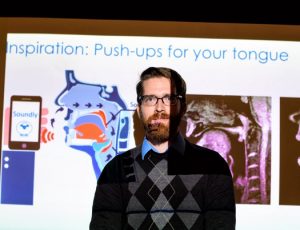$1,436,975 of Emergency Financial Aid Grants were distributed on May 28 and June 15 to students under Section 18004(a)(1) of the CARES Act. 2,526 students at Augsburg University are eligible to participate in the federal student financial aid programs under Section 484 of the Higher Education Act of 1965, as amended, and thus are eligible to receive Emergency Financial Aid Grants to students under Section 18004(a)(1) of the CARES Act. All 2,526 students have received an Emergency Financial Aid Grant at Augsburg University under Section 18004(a)(1) of the CARES Act.
Student and Institutional Quarterly Reports
Student Quarterly Reports
Student Quarterly Report 3/31/23
As of March 31, 2023, Augsburg University has been awarded $7,660,181 of Higher Education Emergency Relief Funds to be used for Emergency Financial Aid Grants for students from the CARES Act, the CRRSA Act, and the ARP Act. The student disbursements are now included in the Institutional Quarterly Report for 3/31/23. All funds have been disbursed as of March 31, 2023.
Student Quarterly Report 12/31/22
As of December 31, 2022, Augsburg University has been awarded $7,660,181 of Higher Education Emergency Relief Funds to be used for Emergency Financial Aid Grants for students from the CARES Act, the CRRSA Act, and the ARP Act. The student disbursements are now included in the Institutional Quarterly Report for 12/31/22.
Student Quarterly Report 9/30/22
As of September 30, 2022, Augsburg University has been awarded $7,660,181 of Higher Education Emergency Relief Funds to be used for Emergency Financial Aid Grants for students from the CARES Act, the CRRSA Act, and the ARP Act. The student disbursements are now included in the Institutional Quarterly Report for 9/30/22.
Student Quarterly Report 6/30/22
As of June 30, 2022, Augsburg University has been awarded $7,660,181 of Higher Education Emergency Relief Funds to be used for Emergency Financial Aid Grants for students from the CARES Act, the CRRSA Act, and the ARP Act. The student disbursements are now included in the Institutional Quarterly Report for 6/30/22.
Student Quarterly Report 3/31/22
As of March 31, 2022, Augsburg University has been awarded $7,660,181 of Higher Education Emergency Relief Funds to be used for Emergency Financial Aid Grants for students from the CARES Act, the CRRSA Act, and the ARP Act. The University has disbursed $6,884,596 in aid through December 31, 2021. Student eligibility criteria was based on a valid and completed Free Application for Federal Student Aid (FAFSA) and the amounts were distributed based on each student’s program and expected family contribution. For students without a FAFSA, the amounts were distributed based on each student’s program with undocumented students receiving higher amounts. Students could also apply for additional funds due to pandemic-related expenses. For the period January 1, 2022 through March 31, 2022, the University disbursed $77,145 to 135 students.
Student Quarterly Report 12/31/21
As of December 31, 2021, Augsburg University has been awarded $7,660,181 of Higher Education Emergency Relief Funds to be used for Emergency Financial Aid Grants for students from the CARES Act, the CRRSA Act, and the ARP Act. The University has disbursed $3,259,242 in aid through September 30, 2021. For the period of October 1, 2021, through December 31, 2021, there were 3,131 students eligible to receive these funds. Student eligibility criteria was based on a valid and completed Free Application for Federal Student Aid (FAFSA) and the amounts were distributed based on each student’s program and expected family contribution. For students without a FAFSA, the amounts were distributed based on each student’s program with undocumented students receiving higher amounts. Students could also apply for additional funds due to pandemic-related expenses. For the period October 1, 2021 through December 31, 2021, the University disbursed $3,625,354 to 3,025 students.
Student Quarterly Report 9/30/21
As of September 30, 2021, Augsburg University has been awarded $7,660,181 of Higher Education Emergency Relief Funds to be used for Emergency Financial Aid Grants for students from the CARES Act, the CRRSA Act, and the ARP Act. The University has disbursed $3,259,242 in aid through June 30, 2021. For the period of July 1, 2021, through September 30, 2021, there were no student disbursements.
Student Quarterly Report 6/30/21
As of June 30, 2021 Augsburg University has been awarded $7,660,181 of Higher Education Emergency Relief Funds to be used for Emergency Financial Aid Grants for students from the CARES Act, the CRRSA Act and the ARP Act. For the period of April 1, 2021 through June 30, 2021, there were 2,487 students eligible to receive these funds. Student eligibility criteria was based on a submitted application, submitted Institutional Student Information Record, spring term enrollment, and citizenship/eligible non-citizenship status as confirmed on the Free Application for Federal Student Aid. Grant amounts were distributed based on each student’s program and expected family contribution. Students could also apply for additional funds due to pandemic related expenses. For the period April 1, 2021 through June 30, 2021, Augsburg disbursed $1,629,621 to 1,331 students.
Student Quarterly Report 3/31/21
As of March 31, 2021, Augsburg University has been awarded $3,259,242 of Higher Education Emergency Relief Funds to be used for Emergency Financial Aid Grants for students from the CARES Act, the CRRSA Act, and the ARP Act. The University has disbursed $1,452,325 in aid through December 31, 2020. For the period of January 1, 2021, through March 31, 2021, Augsburg disbursed $177,296 to 71 students.
Student Quarterly Report 12/31/20
As of December 31, 2020, Augsburg University has been awarded $1,629,621 of Higher Education Emergency Relief Funds to be used for Emergency Financial Aid Grants for students from the CARES Act, the CRRSA Act, and the ARP Act. The University has disbursed $1,436,975 in aid through September 30, 2020. For the period of October 1, 2020, through December 31, 2020, Augsburg disbursed $15,350 to 121 students.
Student Quarterly Report 9/30/20
As of September 30, 2020, Augsburg University has been awarded $1,629,621 of Higher Education Emergency Relief Funds to be used for Emergency Financial Aid Grants for students from the CARES Act, the CRRSA Act, and the ARP Act. The University has disbursed $1,436,975 in aid through July 7, 2020. There were no disbursements for the period of July 8, 2020, through September 30, 2020.
Institutional Quarterly Reports
Institutional Quarterly Report 9/30/20
Augsburg was allocated a total of $3,259,242 under Section 18004(a)(1). Pursuant to the Certification and Agreement for Emergency Financial Aid Grants to Students, at least $1,629,621 will be distributed directly to eligible students impacted by campus disruptions due to the coronavirus. The Certification and Agreement for the Institutional Portion states that the remaining $1,629,621 may be used to cover institutional costs associated with the coronavirus.
As of September 30, 2020, Augsburg had drawn down $1,312,196 of the Institutional Portion but has incurred expenses exceeding the total amount of the institutional portion. The Institutional Portion Expenditure Report Form discloses Augsburg’s categorization of the expenses equal to the full amount of the institutional portion.
Quarterly Budget and Expenditure Reporting form (third quarter 2020)
 After the unsafe events Friday night in Minneapolis, we made the decision to temporarily close residence halls on campus and relocate resident students outside of the metro area if they did not have alternative places to stay. That Saturday morning, it was not clear whether Saturday night would be a repeat of Friday, so we made an alternative housing option available outside the Twin Cities for students—including providing meals and transportation in compliance with our COVID-19 protocols.
After the unsafe events Friday night in Minneapolis, we made the decision to temporarily close residence halls on campus and relocate resident students outside of the metro area if they did not have alternative places to stay. That Saturday morning, it was not clear whether Saturday night would be a repeat of Friday, so we made an alternative housing option available outside the Twin Cities for students—including providing meals and transportation in compliance with our COVID-19 protocols. 




 More than 900 Augsburg University undergraduate students were named to the 2019 Fall Semester Dean’s List. The Augsburg University Dean’s List recognizes those full-time students who have achieved a grade point average of 3.50 or higher and those part-time students who have achieved a grade point average of 3.75 or higher in a given term.
More than 900 Augsburg University undergraduate students were named to the 2019 Fall Semester Dean’s List. The Augsburg University Dean’s List recognizes those full-time students who have achieved a grade point average of 3.50 or higher and those part-time students who have achieved a grade point average of 3.75 or higher in a given term.